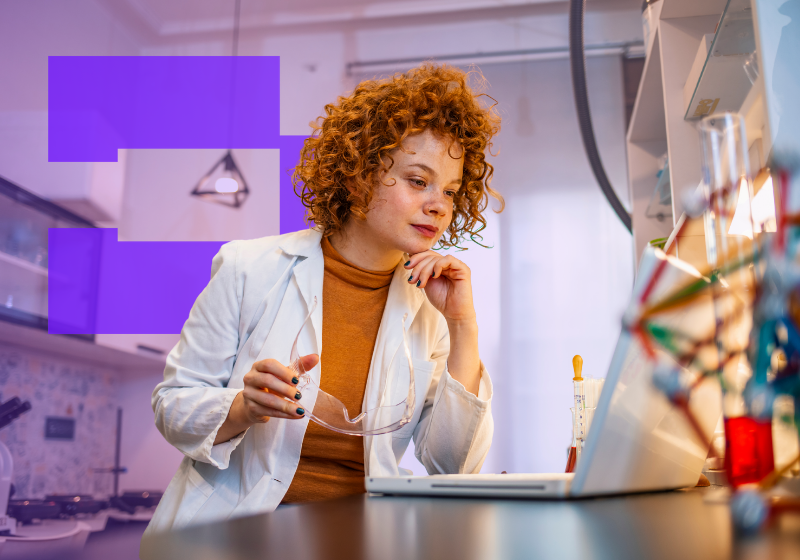Automation is transforming how laboratories operate, enabling faster processes, greater precision, and more efficient workflows. Robotic systems handle repetitive, high-volume, or time-consuming tasks with speed and consistency. While automation improves efficiency and reproducibility, it cannot replace the expertise, judgement and creativity that professionals bring to the lab.
Designing experiments, interpreting complex data, troubleshooting unexpected issues, and making strategic decisions remain inherently human tasks. Rather than diminishing their role, automated systems allow scientists to focus on higher-value work, enhancing productivity, innovation, and insight. This article explores the evolving role of scientists in automated laboratories and how technology complements their expertise.
The unique contributions of scientists in automated labs
Even in fully automated environments, scientists remain critical to laboratory success. While machines handle routine processes, professionals provide insight, judgment, and strategic oversight. Key responsibilities include:
- Defining objectives and designing workflows
Scientists decide which experiments or procedures to run, select key variables, and design workflows to deliver accurate and interpretable results. Their decisions rely on understanding the broader context of the lab and anticipating challenges that automation alone cannot address. - Managing protocols and scheduling tasks
While automated systems execute tasks, laboratory staff input and adjust protocols, prioritize workloads, and coordinate resources. They ensure that automation aligns with operational goals and can adapt to new or changing requests. - Monitoring equipment and troubleshooting
Scientists monitor equipment performance, respond to alerts, and resolve technical issues to maintain reliable operations and high-quality outcomes. This proactive involvement prevents errors from cascading and ensures experiments run smoothly. - Analyzing and interpreting data
Robotic systems generate large volumes of data, but deriving actionable insights requires human judgement. Scientists interpret patterns, contextualize results, and translate findings into informed decisions. - Communicating results
Reporting outcomes, preparing documentation and presenting findings to stakeholders are tasks that rely on human clarity and understanding ensuring results are accurate and actionable. - Staying current with industry knowledge
Laboratory professionals continually monitor advances in technology, best practices and regulations. Keeping pace with the literature ensures laboratories remain efficient, compliant and innovative. - Optimizing workflows and refining automation
Scientists continually refine automated processes, identifying opportunities for improvement based on operational insight and hands-on experience. Automation is a tool to enhance workflows, not a static replacement for expertise.
How scientists and automated platforms work together
Automation excels at repetitive or labor-intensive tasks, including pipetting, plate handling, sample tracking, routine scheduling, and basic data collection. These systems reduce errors, increase reproducibility, and allow scientists to focus on tasks that require reasoning, problem-solving, and strategic thinking.
The partnership between scientists and automation creates a laboratory environment that is both efficient and innovative. Automated systems handle high-throughput operations with consistent precision, while professionals oversee processes, interpret complex results, and make informed decisions. This collaboration increases productivity, flexibility, and resilience in the face of unexpected challenges, highlighting that automation enhances rather than replacing scientists.
Conclusion
Lab Automation is a major advancement in modern laboratory operations, improving efficiency, precision, and workflow management. However, human expertise remains central to meaningful outcomes. By relieving professionals of repetitive tasks, automated platforms enable them to focus on designing experiments, analyzing data, troubleshooting issues, and driving innovation.
Integrating human knowledge with automated systems fosters an environment where accuracy, efficiency, and creativity coexist. For labs seeking to maximize both operational excellence and scientific insight, leveraging the strengths of both scientists and technology is essential. Automation expands capacity without replacing the critical skills that drive breakthroughs.
Contact us today to book a demo and discover how Director™ lab automation software can help your laboratory achieve smarter workflows through the partnership of human expertise and automation.

